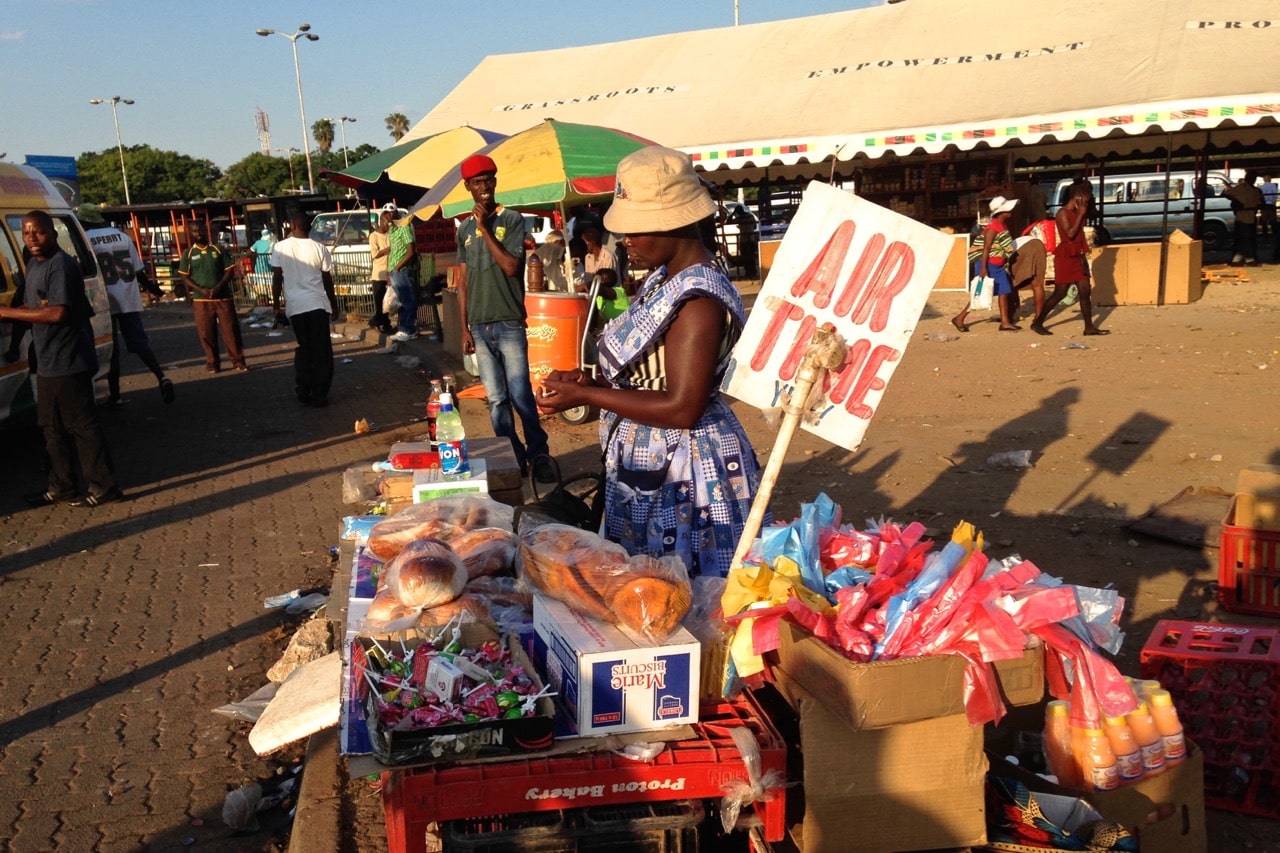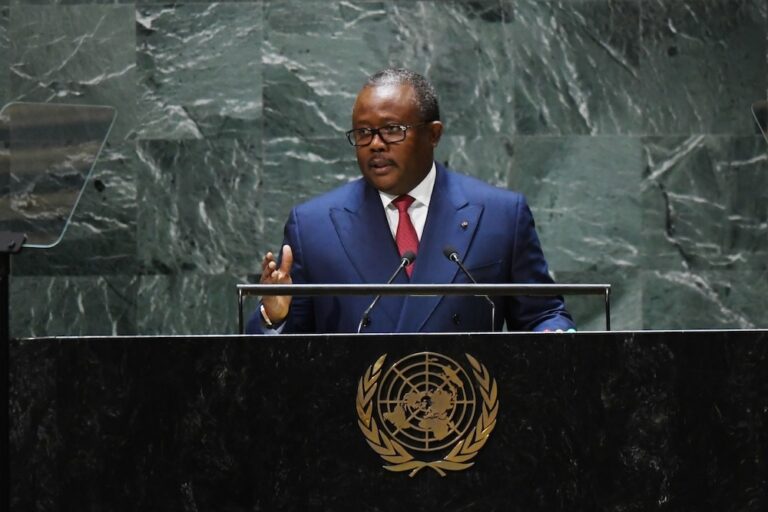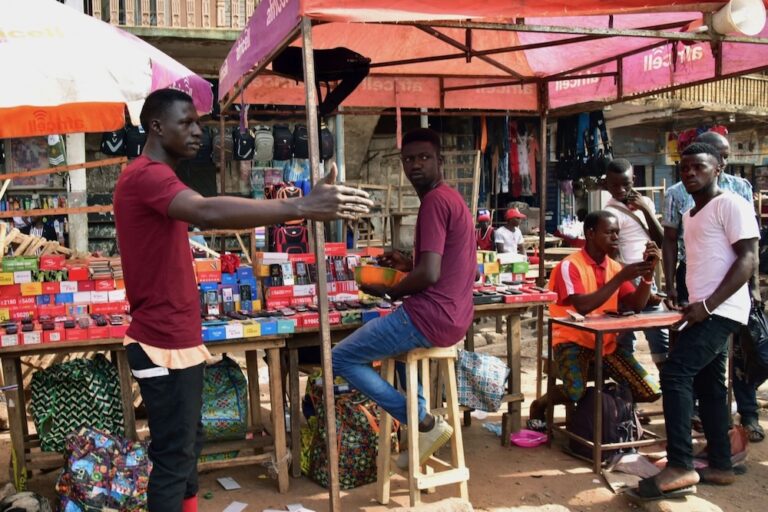Alice Nderitu, Zimbabwe's clampdown on social media, newspaper shutdowns in Tanzania, Cameroon journalists released and more in our October round-up of news from Africa.
Zimbabwe’s Minister of Whatsapp
Zimbabwe President Robert Mugabe has created a new cyber security ministry that intends to be used as “a trap used to catch rats.” Government spokesperson George Charamba said Mugabe came up with the idea to address an “emerging threat to the state… a threat founded on abuse and unlawful conduct,” according to BBC News.
Zimbabwe has a new “minister of WhatsApp” whose first job seems to be to stop WhatsApp https://t.co/3GA9yiNoRz via @qzafrica
— Quartz Africa (@qzafrica) October 14, 2017
On 9 October 2017, it was announced that former finance minister Patrick Chinamasa would lead the Ministry of Cyber Security, Threat Detection, and Mitigation. Zimbabweans soon after began jokingly referring to Chinamasa’s position as “Minister of WhatsApp.” But the jokes don’t reflect the severity of the situation. In a blog post for the Council on Foreign Relations, Arthur Gwagwa and Jeffrey Smith note that the rhetoric of national security is being used to clamp down on political participation as ruling party ZANU-PF faces a leadership crisis and as citizen-led civic movements gain momentum.
In a statement, the Media Institute of Southern Africa-Zimbabwe (MISA-Zimbabwe) said that Minister Chinamasa’s threats to tighten control over social media have “chilling effects on the use of social media by the citizenry.”
Freedom and internet…only for some
The end of October brought freedom for journalists Félix Cyriaque Ebolé Bola, Baba Wamé and Rodrigue Tongué. On 30 October, a military court in Cameroon found them not guilty on charges of criminal defamation for “complicity in attempting to insult” President Paul Biya. The reporters had been detained since 2014, and were originally charged in relation to a story they were researching. They had been investigating allegations that Cameroonian security forces were colluding with a leader of an armed group from the Central African Republic, according to information cited by the Committee to Protect Journalists (CPJ).
Aboubakar Siddiki, who was also arrested in connection with the case in 2014, was not released alongside the journalists on 30 October. The well-known critic of President Paul Biya, and leader of Cameroon’s Patriotic Salvation Movement, was instead sentenced to 25 years in prison for “plotting to destabilise” the Biya government, according to BBC News.
Journalists and opposition leaders are not the only ones being silenced in Cameroon. On 1 October, police in the Northwest and Southwest regions of the country attacked demonstrators with bullets and tear gas as they gathered to commemorate the anniversary of the proclamation of the Independence of Cameroon. The Africa Freedom of Expression Exchange (AFEX) reports that a total of 12 people were killed, and several others injured during this time.
The violence was compounded by yet another internet blackout in the anglophone regions; activists reported having difficulty accessing platforms including Facebook and WhatsApp. Earlier this year, residents of Cameroon’s anglophone Northwest and Southwest regions endured a 93-day internet shut down, prompting international outcry and a campaign called #BringBackOurInternet.
Tanzania’s big panic
Free expression defenders in Tanzania may soon need to develop a hashtag of their own, as newspapers in the country face increasing censorship.
On 24 October, Tanzania Daima was banned from publishing for three months after running a story that cited an incorrect number of Tanzanians taking antiretrovirals to treat HIV. Even after it issued a correction, Tanzania Daima was still said to have “misled the country in a big way and brought about panic,” according to Bloomberg.
This is the fourth newspaper to be shut down in Tanzania since June. Other publications facing similar fates include MwanaHalisi, Raia Mwema and Mawio, Al Jazeera reports.
.@pressfreedom is concerned by the this suspension of daily newspaper, #Tanzania Daima for 90 days, part of censorious trend @MagufuliJP https://t.co/GERmRlBOPd
— CPJ Africa (@CPJAfrica) October 24, 2017
Henry Maina, head of ARTICLE 19 East Africa, has expressed concern over Tanzania’s wave of shutdowns, that have happened in tandem with the persecution of government critics. “We are going to have a situation where the media, the civil society, and the opposition can no longer raise their voices to hold the government to account because the instruments of power are clearly being used to incarceration, jail and in ornately open cases,” he told Voice of America.
Peace through pluralism
As a child growing up in Kenya, Alice Wairimu Nderitu was told that women could not participate in peacemaking processes.
As an adult, she proved them wrong.
On 3 October 2017, Nderitu received a 2017 Global Pluralism Award for her impressive career as a peacemaker.
The award – which recognizes outstanding achievements to support more inclusive societies worldwide – is presented by the Global Centre for Pluralism, a non-profit international research and education centre based in Ottawa, Canada.
Nderitu is currently Senior Advisor at the Centre for Humanitarian Dialogue. For years, she has been successful in a field where women mediators are significantly underrepresented. In 2010, Nderitu was one of three mediators leading a peace process as Commissioner of the National Cohesion and Integration Commission in Kenya. The Commission brought together 100 elders from different ethnic communities as a response to the 2007-2008 Kenyan election violence that left over 1,300 dead and 600,00 displaced. Nderitu was the only woman at the table.
Her work has also taken her to various regions of Nigeria, including Jos, Southern Kaduna, and Southern Plateau, where she led inclusive dialogues between members of numerous ethnic communities, ensuring that women and youth were actively represented in the negotiations. Nderitu was also co-founder and the first chairperson of the Uwiano Platform for Peace, a conflict prevention agency that helped ensure peaceful elections in Kenya in 2013.
Nderitu’s efforts are particularly salient at this point in time, as Kenya is confronted by violence following a repeat presidential election in October.
Punitive policing
Justus Nyang’aya’s sobering remarks reflect the most recent acts of violence that erupted in Kenya as the country held elections for the second time since August.
On 26 October, Kenyans went to the polls yet again after a Supreme Court ruling declared the 8 August elections to be unconstitutional.
Tensions were high as opposition leader Raila Odinga called for a boycott of the renewed elections; some of his supporters blocked access to polling stations and threw stones in protest.
But most opposition supporters protested peacefully – and many did not protest at all. To the police, it seemed to make no difference.
“In Kisumu, the evidence we gathered paints a grim picture of police shooting, aggressively assaulting, and even breaking into the homes of people suspected to be protesters; but also those who happen to be in the vicinity of protests,” Nyang’aya said in a press release by Amnesty International. “People have been seriously injured or shot while buying food in the market, walking home from school or resting in their homes.”
Amnesty International reports that at least 2 people were fatally shot by police in Kisumu, while a community worker and activist was shot dead in the Mathare slum of Nairobi on 26 October.
Amnesty’s statement only further compounds the urgency of a recent report by the Kenya National Commission on Human Rights (KNCHR). Published on 9 October, KNCHR’s report reveals that 37 people were killed following the August 8 elections, including 3 children. Some of them died as a result of live ammunition fired by police, the report says.
In brief
Cartoonists in Accra, attended a workshop held by Cartoonists Ghana, in partnership with Cartoonists Rights Network International and the National Endowment for Democracy. Attendees had the opportunity to discuss topics including defamation and the rights of public officials. They also strategised on how to pursue their work safely, without compromising their right to free expression. Workshops like these are particularly important given that cartoonists in the region are already facing backlash for their work.
Ramón Nsé Esono Ebalé, a cartoonist from Equatorial Guinea, spent his 44th day in detention on 31 October. Ebalé – better known by his pen name Jamón y Queso – produces critical commentary on President Teodoro Obiang Nguema Mbasogo through his drawings and blog.
In Togo, four people were killed as security forces cracked down on opposition protests – among them was an 11-year-old boy. The violence follows months of protests calling for political reform and an end to the “Gnassingbé dynasty.”
In Uganda, two newspaper editors were interrogated by the Criminal Investigations Directorate over stories they had published about a bill that seeks to remove the presidential age limit in the country. Daily Monitor Executive Editor, Charles Odoobo Bichachi and Red Pepper Deputy News Editor Kintu Richard were then both charged with offensive communication/libel, according to the Human Rights Network for Journalists-Uganda.
In the Central African Republic, leading community radio station, Radio Mbari was forced to close after being threatened by armed groups.
In Chad, publisher Juda Allahondoum was detained following a story he wrote about a Chadian airline’s alleged involvement in arms deliveries to Syria. He was then accused of “pretending to be a journalist,” according to Reporters Without Borders.
“…governments like Zimbabwe are seeking to shape cyberspace in ways that merely serve to legitimize their repression, their political self-interests and long-term survival.”Arthur Gwagwa and Jeffrey Smith in a blog post for the Council on Foreign Relations
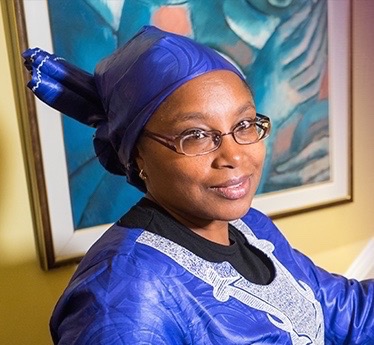
Alice Wairimu Nderitu is a recipient of a 2017 Global Pluralism AwardMel Snyder/Inclusive Security/Creative Commons license: http://bit.ly/RaejCi (original image cropped)
“What we are witnessing appears to be punitive policing; a blatant attempt to intimidate and punish residents in the opposition stronghold.”Justus Nyang’aya, head of Amnesty International Kenya
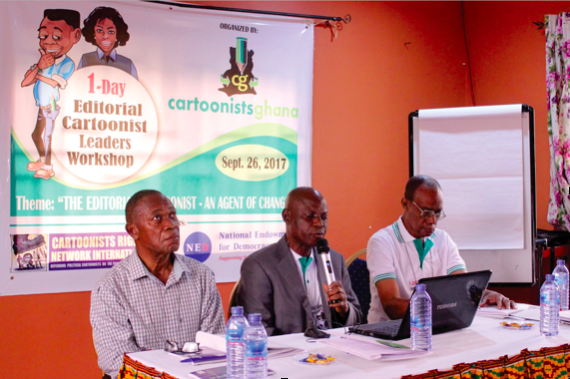
The Executive Director of Cartoonists Ghana, Ike Essel (middle), delivers a welcome message at a workshop held in Accra on 26 September 2017Cartoonists Ghana
